‘Great Turning’ Visionaries | Part 2
PART 1 of this Conversation can be found HERE.
You can watch the full video HERE.
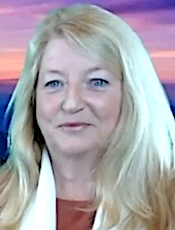 Mattie Porte | So this question surrounds the adversity that we face and the increasing adversity we are about to face, through the effects of catastrophic climate change, human-made, human-caused climate change, and the threat of mass species extinction, including our own. And I know that you have all done to varying degrees, profound works shops, and you’ve designed healing spaces. And Joanna through The Work that Reconnects giving us a process through which to grieve and experience our pain and loss for a world in crisis. So I’d like to start with Duane this time, because Duane, in your book, you beautifully juxtaposition the possibility of both hope and despair, and that we, as humanity are facing a choice. So can you say more about that? What are the skills and practices that we need to cultivate?
Mattie Porte | So this question surrounds the adversity that we face and the increasing adversity we are about to face, through the effects of catastrophic climate change, human-made, human-caused climate change, and the threat of mass species extinction, including our own. And I know that you have all done to varying degrees, profound works shops, and you’ve designed healing spaces. And Joanna through The Work that Reconnects giving us a process through which to grieve and experience our pain and loss for a world in crisis. So I’d like to start with Duane this time, because Duane, in your book, you beautifully juxtaposition the possibility of both hope and despair, and that we, as humanity are facing a choice. So can you say more about that? What are the skills and practices that we need to cultivate?
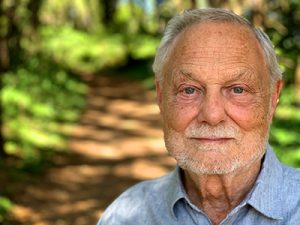 Duane Elgin | Well, you mentioned Joanna’s work, looking at the grieving of what is being lost. I think that is foundational. Until we open and allow into our heart, our soul, what is being lost – not simply being lost to humans – the loss of life, of plants, and animals and their future as well. There’s upwards of a million species that may be extinct by the end of this century. And so if we can open to the loss and allow that grieving to enter into our hearts and our beings, that then is a coming home to reality. And out of that recognition of reality, we can then give our unique gifts to healing the world.
Duane Elgin | Well, you mentioned Joanna’s work, looking at the grieving of what is being lost. I think that is foundational. Until we open and allow into our heart, our soul, what is being lost – not simply being lost to humans – the loss of life, of plants, and animals and their future as well. There’s upwards of a million species that may be extinct by the end of this century. And so if we can open to the loss and allow that grieving to enter into our hearts and our beings, that then is a coming home to reality. And out of that recognition of reality, we can then give our unique gifts to healing the world.
And so the second part, I think, would be finding our true gifts. It may be gifts of music and art and of spiritual practice and so on. We each come into this world with unique and true gifts. And so there’s no specific remedy that I am suggesting, but rather to grieve what is being lost, look within at what can be gained by what we can give back to the world. That would be my core suggestion for our moving to healing.
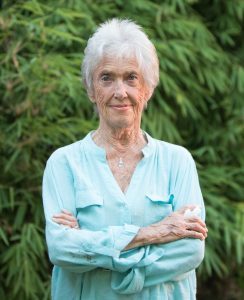 Joanna Macy | I recall some wondrous moments at Findhorn where we were able to do that in very large numbers actually, where we brought in that this was not just my solitary pain as Bill, Joe, or Emma, but that this is a species moment. This is an ‘all of us’ moment. Or particularly, this is a moment of those of us who have been identified with the privilege that we can go to places like Findhorn.
Joanna Macy | I recall some wondrous moments at Findhorn where we were able to do that in very large numbers actually, where we brought in that this was not just my solitary pain as Bill, Joe, or Emma, but that this is a species moment. This is an ‘all of us’ moment. Or particularly, this is a moment of those of us who have been identified with the privilege that we can go to places like Findhorn.
So the opening to the loss, to do it together and to find that we are many in this horror and guilt. You can see that there is something very deep about it, that we are inviting a massive opening of the heart and a creative way even of articulating that, letting it pour out in movement and gesture, or in painting, in words, to build a monumental expression that can change who we are, can lift us up to a larger identity that can see the path we’ve been on.
And in that, we cannot be silenced. For so many people, and particularly in my culture in the United States, where we pathologize, this becomes something very creative that stirs the very depth of one’s consciousness, and we find a unity in that, and a creativity that we can find to change and rebuild.
Mattie Porte | Thank you. I’ve actually witnessed those sessions together in the Universal Hall here at Findhorn that you spoke of. And they were profoundly healing, and opened up a gateway for me and gave permission to feel whatever the emotion was to feel. And you’re right. To do that together is astonishingly powerful. Thank you for your great work. I knew if I posed this question, it would cause me to feel deeply.
And also, listening to some of the things you were saying, Pat, about the enormous adversity facing Indigenous people since the arrival of the white men, let’s say. And I know that you’ve done some beautiful rituals and healing ceremonies. And I wonder what wisdom you have to share with us. What have you learned about how to face adversity that might benefit others viewing our session today?
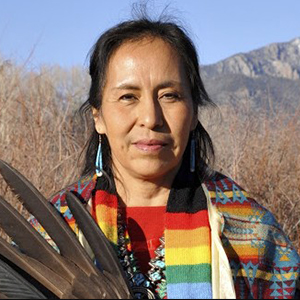
Pat McCabe | Thank you. Yeah, I’m remembering our global wiping of the tears ceremony at Findhorn during the New Story Summit. Wow. Wow. Well, you notice I keep speaking about paradigm. So for me, redefining our context is key. And the reason that I participate in so many talks and panels is not because I’m interested in cultural show and tell, but I want to propose that sustainability is the highest and most sought after technology on the planet.
Who should we be to talking to? We should be talking to those people who’ve known how to live in one place over an extended period of time, a thousand years, 5,000 years, 10,000 years, 20,000 years in relative health, harmony and happiness. So I want to keep bringing that to us. And so, we were talking about the guilt and shame of being human right now. We have low self-esteem as a species right now, because we have this belief that everything we touch, we destroy right now.
So I want to point to something, and this actually comes out of my daughter, Lyla June’s work. She’s getting her PhD in traditional land management practices, but she’s pointing this a lot out to me, but I’ll say it this way. Remember what we were taught in the history books. When those ships came and touched on this continent, it doesn’t matter where they touched, South America, what we call North America, what did they always say? They always were stunned and amazed at what they saw when they arrived. It was lush, it was fruiting, it was flowering. The game was plentiful, et cetera. They couldn’t believe their eyes. They had landed on Eden.
But the implication in that story that has so gripped humanity’s psyche is that it was unspoiled by human touch, right? Because if it had been touched by humans, it would’ve looked like where they came from. Well, the truth is, there were millions of humans on the continent. So imagine that. There was a way to be human here, such that we could cause all life to thrive. So again, it’s not a fantasy. It’s not a fantasy. And also, we had social technologies. So we had people with completely different cosmologies, completely different languages, completely different understanding of what masculine, feminine roles were living side by side. So we have social technology.
We have that capacity. We can actually deal with diversity. It’s inherent in us. So one other thing that I wanted to bring up here is what I’ve been saying to activists for a while is, we have to simultaneously prepare for war and peace at the same time.
Standing in our dissent and declaring clearly what we give our consent to and what we do not give our consent to, that is spiritually huge, huge, huge. We must do that whether we believe anybody’s going to do anything about it or not, because it sets certain spiritual laws into motion.
I won’t go into that in my short time here, but I’m going to say, that’s very important. And peace, because as the Earth changes come, a willingness is going to be sweeping the land, which it already is. Willingness, and more willingness, and more willingness as the realization of what the falseness of the modern world paradigm has been comes to bear.
And so that’s why we have to stay spiritually fit, why we have to be able to receive our former enemy. As that willingness and that dawning realization sweeps over them, we have to be able to receive them and take them in and become interbeing.
And the last thing I’ll say is, I started out being raised in the Dutch Christian Reformed Church because that’s how my parents were raised. Those were the missionaries that took them into the residential boarding school. And so I do have visitations just the same as other spirits, like White Buffalo Calf Woman or the Corn Mothers. I have visitations from the Christ. And he has talked to me and he has said, “We are in a dark age. Humanity has been in a dark age. And what I came to propose is that there is always a possibility of renewal, or we could say a resurrection.”
And how does that come? That comes through the process of forgiveness. Forgiveness is not for them, it’s for you. It is for you in order to be able to continue on, on this road. But not just you. I always see myself traveling in the middle of seven generations. And so we know what happens when we carry emotional difficulty to generations that come after us. In order for humanity to keep traveling through this dark era thousands of years now, we have to be able to preserve, not just ourselves. We can’t think only in terms of one generation, but in a way that radiates out through this traveling with seven generations.
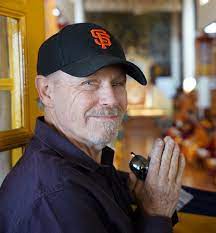 Craig Schindler | I loved what Joanna said, “A massive opening of the heart.” And Pat, what you said about, “The willingness to embrace those who have been perceived previously as adversaries.” I’ve been doing dialogue work, as you said, across the country and around the world. And one of the first dialogues we ever did was in upstate New York. We had people of different political persuasion, which sounds like a radical idea in our world now in the current demonization. We had people of pretty much every ethnicity that exists in this country and religious background. And we were learning the principles of conflict resolution, except no one was listening to each other. And at the end of the day, we all sat on the floor and I made a simple suggestion, which is that we pause, we breathe, and we really listen to each other, tell our stories. Because in those stories is struggle. Everyone has a struggle. In those stories is grief, especially now, emerging from the pandemic. In those stories is hope. And when we can hear each other’s stories, we can find that kinship of loss and that kinship of belonging. And so we did that all evening. And the next morning, when we got up, someone in the group suggested we sing a Zulu greeting chant, and then someone else suggested we sing Amazing Grace.
Craig Schindler | I loved what Joanna said, “A massive opening of the heart.” And Pat, what you said about, “The willingness to embrace those who have been perceived previously as adversaries.” I’ve been doing dialogue work, as you said, across the country and around the world. And one of the first dialogues we ever did was in upstate New York. We had people of different political persuasion, which sounds like a radical idea in our world now in the current demonization. We had people of pretty much every ethnicity that exists in this country and religious background. And we were learning the principles of conflict resolution, except no one was listening to each other. And at the end of the day, we all sat on the floor and I made a simple suggestion, which is that we pause, we breathe, and we really listen to each other, tell our stories. Because in those stories is struggle. Everyone has a struggle. In those stories is grief, especially now, emerging from the pandemic. In those stories is hope. And when we can hear each other’s stories, we can find that kinship of loss and that kinship of belonging. And so we did that all evening. And the next morning, when we got up, someone in the group suggested we sing a Zulu greeting chant, and then someone else suggested we sing Amazing Grace.
I’ve had the experience in this last year and a half of being awakened at 2:30 in the morning and told that the fires were close to our house, going up and feeling the ashes raining down, giving myself half an hour to run in and out of the house, so I wouldn’t be trapped, to get a few photo albums, a guitar, a computer. I’ve had the experience of understanding that everything isn’t permanent, everything turns to ashes. And yet, what survived that fire – a whole mountain side, nothing of our structures – was a statue of St. Francis and the Earth flag. Honestly, the fire went over the statue and over the Earth flag. And I took that as a message from our living planet that we have to find what Duane said about coming home to our interdependence and our kinship of loss.
Dr. King said that our goal is to create the beloved community on Earth. And this will require an inner change in the quality of our soul and an outer change in the quantity of our compassionate action.
I love the quote from Paul Hawken. He says, “It’s imperative we remember that climate change isn’t just happening to us. It’s happening for us.” What does that mean? It means that we’re coming together. We have to come together. No matter what travail we go through, no matter how much loss is coming, no matter how much catastrophic effect is happening, we will come together because we must, because we have to awaken and see our interrelatedness.
As Dr. King said in the darkest hour of his life when he was praying at his kitchen table before he got a phone call saying that his house was going to be bombed during the Montgomery bus boycott, he says, “Whether we believe in a personal God, a force of love or an impersonal Brahman, there is a cosmic companionship.” That is the phrase he used in 1956, a cosmic companionship. And we are not alone. It is in our destiny to evolve to this next level of our humanity. God, Great Spirit, however you conceive of a higher power, is with us.
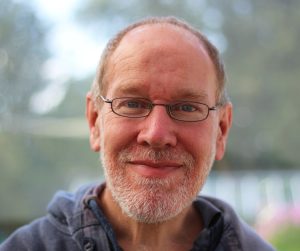 Chris Johnstone | What’s really landing with me is the word from you, Pat, co-witnessing. And I just want to take that in and hold that, and be aware of my co-witnessing with you, co-witnessing what you are saying. And the invitation to really hear each other as part of that co-witnessing in terms of what’s needed, what’s needed now in these times. I do a lot of work around resilience training. And one of the practices I do is I invite people to hold their hands out and imagine that in one hand is a tennis ball, and in the other hand is a tomato. And I invite you to do this, if you like. You can just try it now, and anyone reading, try this. Imagine the tennis ball, what it feels like in your hand, and then squeeze, just squeeze gently, and then let go. And you can hold the tomato and feel it in your hand and squeeze gently, and then let go. And then squeeze harder, maybe squeeze both at the same time and see what happens. And I sometimes do this with a tennis ball and tomato, but it is messy.
Chris Johnstone | What’s really landing with me is the word from you, Pat, co-witnessing. And I just want to take that in and hold that, and be aware of my co-witnessing with you, co-witnessing what you are saying. And the invitation to really hear each other as part of that co-witnessing in terms of what’s needed, what’s needed now in these times. I do a lot of work around resilience training. And one of the practices I do is I invite people to hold their hands out and imagine that in one hand is a tennis ball, and in the other hand is a tomato. And I invite you to do this, if you like. You can just try it now, and anyone reading, try this. Imagine the tennis ball, what it feels like in your hand, and then squeeze, just squeeze gently, and then let go. And you can hold the tomato and feel it in your hand and squeeze gently, and then let go. And then squeeze harder, maybe squeeze both at the same time and see what happens. And I sometimes do this with a tennis ball and tomato, but it is messy.
Resilience is often thought of as like that tennis ball that springs back into shape. And there’re times when that’s really handy. When we’ve had a hard knock, we can spring back into shape afterwards. When we felt knocked down, we can get back on our feet again, or when you have that sense of, “Oh, I’m back to my old self again.” But the thing about the tomato is that if you did that in the right place, you can imagine maybe coming back 10 years later and seeing tomatoes grow around you, if you did it outside and there was good soil, or if a bird picked up a bit of the tomato, and then deposited it somewhere. The tomato seeds have this incredible resilience that they can survive through the coldest of winters. It’s a different way of thinking about resilience.
And I’m just thinking, Pat, about you rooting for collapse. And tomatoes won’t grow, unless there’s collapse of the tomato. That’s what releases the seeds for future growth. And I guess what’s needed now is to be aware of these different types of resilience that we will and are experiencing collapse around us, and working in organizations where it just feels like it’s all falling apart, collapse of our weather system. And I think one of the skills and storylines that’s needed is, “how can I plant seeds for future growth? How can I tend to the seeds that have already been planted?”
And even myself, sometimes I feel like a squashed tomato on the floor when I have those moments. How can I, in that moment say, “Okay, what can I do right now that will plant a seed for my growing back in a different way tomorrow?” And you might think of that as bouncing forward, that it’s the resilience of life happening through us. There’s this incredible power in nature.
I’m thinking, Craig, of your home, burnt down. But if you go back to that place a year from now or five years from now, there’s this incredible vitality in the ground that grows back. And if we feel, yeah, we’re part of this too, that same story can happen through us. And so, I love this question. What happens through you? How can life happen through us? How can the story of life happen through us? How can we play our part in that story? And once I really lean into that storyline, it changes what my life is about. And also the expression, “I’m rooting for collapse.” I can already see the wisdom in that, about how we play a role in our choices that will influence what happens next.
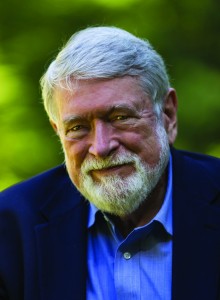 David Korten | Basically, we have to recognize that we each have our… call them individual superpowers. We have our own sets of relationships and sets of skills. And we each need to find our particular place. So the individual is very important, but recognizing that no individual is going to solve this problem, that it depends on us working together. And what it means is, we can’t get there simply by eliminating our use of carbon. We cannot get there simply by eliminating inequality. But what we have to do is eliminate our dependence on carbon while we’re eliminating our extreme and growing inequality, and while we are restoring the quality and vitality of earth’s soils, restoring our forests. We have an infinite variety of things that we need to address together, which require specialized attention, but with a larger vision, realizing that when I’m working on my piece, I’m not competing with you. We are part of the same process. And we have to bring all these pieces together in ways that we’ve never imagined before.
David Korten | Basically, we have to recognize that we each have our… call them individual superpowers. We have our own sets of relationships and sets of skills. And we each need to find our particular place. So the individual is very important, but recognizing that no individual is going to solve this problem, that it depends on us working together. And what it means is, we can’t get there simply by eliminating our use of carbon. We cannot get there simply by eliminating inequality. But what we have to do is eliminate our dependence on carbon while we’re eliminating our extreme and growing inequality, and while we are restoring the quality and vitality of earth’s soils, restoring our forests. We have an infinite variety of things that we need to address together, which require specialized attention, but with a larger vision, realizing that when I’m working on my piece, I’m not competing with you. We are part of the same process. And we have to bring all these pieces together in ways that we’ve never imagined before.
And get this, our whole education system is designed to prevent the kind of learning that is most important to our future.
If you believe ubuntu, well, what that tells you is that we need to organize as a community. I mean, this is a larger lesson too, because now we organize around the power of government, and now we organize around the power of corporations, but for the future we seek, we have to organize around community, communities of place. When we get together for a meeting, we know each other, we know each other very well, we know each other’s superpowers.
So if we’re having a problem with the agriculture, we turn to the person who’s the most skilled in agriculture for solutions. If we got a health problem, we turn to the person who’s the most skilled in that particular issue. Now we have one president, or we have one emperor, or whatever who makes all the decisions. And again, in the most successful communities, your leaders are not all men or they’re not all women. We’re in this together. And we pass the baton around depending on what our particular needs are and skills are for whatever we’re working on.
Mattie Porte | So for our final question, we’re going to go into a rapid round. What is your vision of humanity’s future? Are we going to make it as a species? And let’s start this time with Pat.
Pat McCabe | Well, at this point, consciousness is the name of the game. And I’ll also say, I’ve had it with brilliant ideas and genius. I’m over it. We don’t know. We don’t know. And so we have to reach beyond ourselves. So what is that consciousness shift?
From Indigenous perspective, the history has been that we have been through worlds and we’ve lost worlds. And so, for my work I say, either way, whether we’re going to go off the cliff or whether we stop short, I’m working for consciousness shift and I’m working for reparations. Because I believe that when that next world has to begin all the way over from the very, very beginning again, that we get to start from a different place if we have a different consciousness.
One dream I have also is I think about money.
Money only can come from one place. Money can only have ever come out of the Earth. There’s no other place for it to have come from. So all this accumulation of wealth, the hoarding of wealth, 26 billionaires holding 50% of the world’s wealth. I see that as Life being dammed up.
That Life that has been extracted from earth, from ocean, from sky, from humans, from animals. That Life has to be released back into Life. Life is screaming out for it. And so I’m seeing how we’re going to be able to make the communities such, that it becomes joyful to release that Life back into Life. And that talks a lot about relationship building, trust and a true desire to continue forward and to live.
Craig Schindler | I know that after talking about grief and our kinship of loss, that it may seem strange to use the word joyful. But I love Pat, that you just used it, and what it evoked for me. Winston Churchill, during World War II, talked about walking with destiny, his experience of walking with destiny. And he said that he thought that “courage was the most important virtue, because it made all the others possible.” I would say that we are needing to choose to walk with destiny. And to choose courage and its meaning, strength of heart. I have two grand babies, Zade and Bode ages two and three. They will be about 80 years old at the turn of the century, which means that it’s imminent. We can touch it. We’re living right there. So, I have a new book that’s coming out titled, Choose Hope, You Matter. And I love saying it because I can go, choose hope, and then I can reach to the other and bow and say, you matter, your life matters.
Your dignity matters. Your choices matter. The Dalai Lama says that our world is a spiritual democracy in the sense that it’s the accumulation of all of our consciousness and action. So you matter. And choosing to be hopeless is kind of the booby prize, in that the mind gets to be right, but it disempowers us. Choosing hope is an orientation of the soul. A dimension of the human spirit that is not dependent upon external circumstances. And so on behalf of the children, and the children’s children, and our descendants, we need to choose hope. To commit ourselves to personal leadership with soul force. To help reduce climate change and restore the earth. To advance justice and Human Rights for all people. And to cultivate peace within ourselves, between each other and on the Earth. As Dr. King says, “the darkest hour of the night is the hour before the Dawn.”
This is the hour before the dawn. I believe that. I choose to believe that. I have no proof of that. It’s a stance. So that 200 years from now, historians will look back and say that our Earth was going through a dark time. Life on earth was threatened. Human civilization was threatened. But there was a Great Turning in which individuals awakened to the light of their own consciousness. And in which millions of people joined together for a love-based worldwide rising, that created the conditions for peace, justice and restoring the earth. That is a prayer, may it be so.
Duane Elgin | I don’t know if we’re going to make it. It’s a very precarious time in humanity’s future. And I think if we’re going to make it, we’re going to have to step up consciously. We’re going to either choose it or we’re going to lose it. And I see three major pathways ahead. One is a path of extinction. We just continue on as we have been and we unravel the Earth ever further. We experience breakdown, collapse, and then the functional extinction of the species. Doesn’t mean we have to all disappear, but the functional extinction of the species as a force for evolution can end. And that’s a very real possibility given the track we’re on right now. Another track is authoritarianism, and we can see the rise of the authoritarian mindset in the world. Many people are ready to surrender their personal freedoms for the safety, the security of an authoritarian world. And that world as well, takes us towards the collapse of the world that we have known in the past.
A third world is the one we’ve been speaking about here. It’s the Great Turning. It’s the great transformation. It’s waking up to a new way of being on the earth. Moving from our adolescence as a species and into our early adulthood. Into our maturity. And moving from a Me orientation to a We orientation. How can I heal and care for the wellbeing of all life? And that orientation, I think, is going to emerge out of collapse as well. All three futures contain breakdown and collapse. The question is, given that we’re breaking down, given that the world is collapsing, what will we choose then? Will we choose life? Will we choose a Great Turning? So this is, in my estimation, the time of the most pivotal choice in the last 10,000 years. May we choose life.
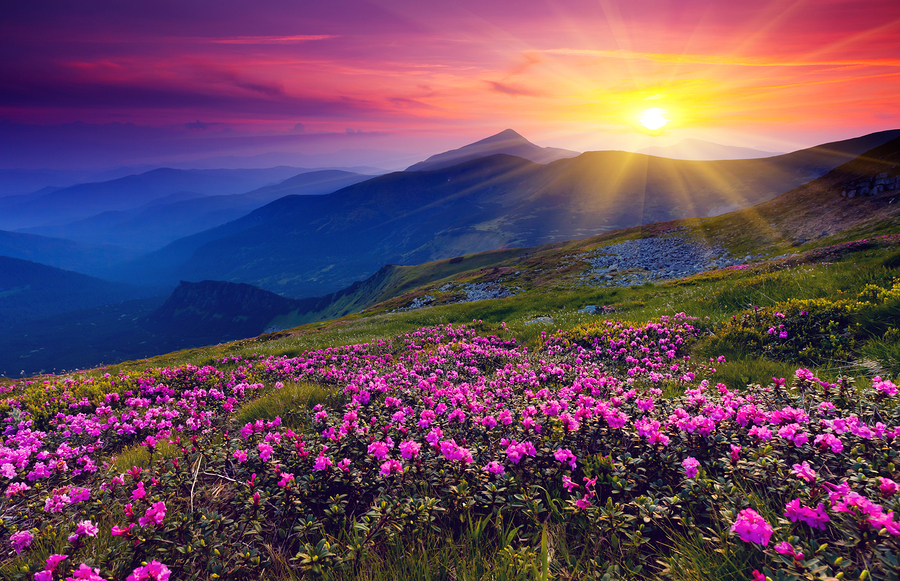
David Korten | Yes, the dream is that we discover our potential and our interdependence. And that we create, what some of us are calling, an ecological civilization, which recognizes the interdependence of life. And our fundamental dependence on the wellbeing of earth and on one another. And that we create a world, in which we recognize that our human responsibility is not to control and dominate earth, which is impossible, but that we are here to partner with Earth, to support the inherent processes of life. And deepen our understanding of life. And create a future, in which, we recognize that it is, in fact, our spiritual understanding and growth that is the Purpose. That we definitely have material needs. And our goal must be to learn to meet our material needs in ways that are consistent with our mutual love and caring. And the wellbeing of Earth, as well as the wellbeing of ourselves and the support of our continued learning.
It requires recognizing that we currently organize around this pursuit of money. Which as you think about it, is really pretty stupid. Because money is nothing but a number that has no existence outside of the human mind. And so we’re destroying life to grow these numbers that don’t even exist in a way. It’s incredible. You know crypto-currency is the ultimate example. The enormous environmental burden it creates. And what is the product? It’s nothing but another set of new numbers on a computer hard drive.
Yeah. It really raises a question. Are we, in fact, an intelligent species? We have potential to become an intelligent species, but we have yet to prove it. Now in terms of the human future, what will it be? I can’t predict that. If you ask me as an objective analyst, I would say, there’s absolutely no hope for the human future. We are so far behind. We’ve got our stories so wrong, our relationships so wrong that we might as well give it up. It’s all over. But I also know, from what I’ve seen and experienced in my life, that we have potentials that we have not yet actualized. And that we also have potentials to shift very, very quickly. If we choose to do so. And that is the challenge of this moment, the challenge of our time.
Mattie Porte | Indeed.
So I would like to give the final word to Joanna, which means Chris, would you like to speak now? And then we’ll hand it over to our revered elder.
Chris Johnstone | Thank you. Thank you so much. Well, I just think the fact that you are asking this question, shows that we’re really in danger. And so that’s what I would focus on. I don’t know the answer. And one of the orientations I find helpful is I can hold out my hand, say each digit is a different way things and go. And we can say, what’s the worst that can happen? The worst that can happen has been described. We could go over the edge of a cliff. We could become functionally extinct. What’s the best that can happen? That’s much more exciting, but what’s most likely to happen? I’d say on the whole, it’s more likely that things are going downhill. But it’s how we respond to that, that makes a difference.
And so is there hope? I’d say, it’s more, what do you hope for? Do I hope that things will work out? Of course I do. And then how can I be active in that? That’s what I’m really interested in. And I love the title of your book, Craig, Choose Hope, You Matter. So the question is a trigger and a warning, and it just really brings me into acknowledgement of what we face. And the Great Turning is about turning up and being clear about what I want to turn away from and what I want to turn towards.
Mattie Porte | And Joanna, the last word is yours.
Joanna Macy | Well as the elder among us, and I am in my nineties now, the astonishment for me, the main astonishment, is a sense of gratitude that floods me. I cannot explain it. But I can try. I would not want to miss this moment on Earth. It is wondrous to me. The very questions that we have posed and answered, what we’ve heard from each other –
Oh my God, would you want to miss being here during this incredible story of being human on this planet!
How far back it goes! And we are seriously sitting here together around the world, looking at what could very easily be curtains for us. And when I first read the report of IPCC that scared me, I saw that.
The next day, I was in a meditation center at Spirit Rock, doing Buddhist mindfulness practice. And I was walking along and trying to keep my mind on just the present moment, just now what’s happening now, not conjecturing. And my mind was caught up with some personal embarrassment, something very minor, and I couldn’t get off it. And I thought, “Oh, I should know what to do with this. Just note it and move on.” And then a thunderous voice came up my left side and it said, “Just fall in love with what is”. And as I heard that, I saw on the path ahead of me, two curtains closing. And I knew that one was the IPCC report on climate catastrophe. And the other was the election in Brazil of Bolsonaro, with his promise to liquidate, cash in on the lungs of the planet.
And since then, what that has bred in me, is taking the possibility of the end quite seriously. And also being totally in love with this world and being so grateful that I didn’t miss this moment. A conversation like this, that you’ve brought together. Mattie, I wouldn’t have missed this for the world. So all I know is that I can learn to be here now. In this now. In this now where we feel our vitality. Where we feel possibility. When our hearts break open. And this is so rich, that I find myself imagining that in Buddha fields around the universe, there are people lining up to get an incarnation on Earth now.
We aren’t missing it. We’re here. Listen what we’ve harvested from each other. The love we’ve heard, it’s in service to our loyalty, in thanksgiving for life itself. And even willing, a love so great that we can see the shameful, shameful elements. We can see it all. So that gratitude is my gratitude for each one of you. And what each one of you has fed me. And where I hang out with this gratitude is in uncertainty – the gift of it. The other side of uncertainty is now. It has three letters. N-O-W. Now, we are in this now. And when entering that, we find a spiritual fountain. We find a holy place. We find trust. We find gladness and we find gratitude.
Craig Schindler | We’re all bowing with love and prayer. I feel it in each of you.
Joanna Macy | I want to thank Craig, the first one in our knowledge to use the term The Great Turning as a phrase.
Pat McCabe | Thank you so much. Great to meet each one of you. Thank you.
Chris Johnstone | I’m really pleased to be alongside and to co-witness.
David Korten | Based on this experience, I’m eager to continue working with you.
Duane Elgin | Much love to each and thank you Mattie.
Mattie Porte | Deep appreciation to each one of you. My heart is so full. Okay my loves, for now, go well. An abundance of blessings to each and every one of you. And I hope to see you again soon.


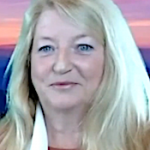
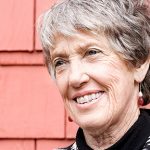
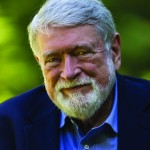
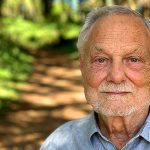
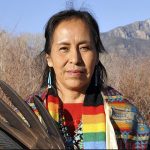
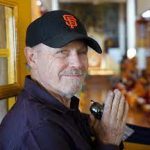
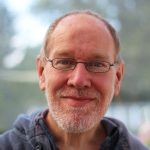
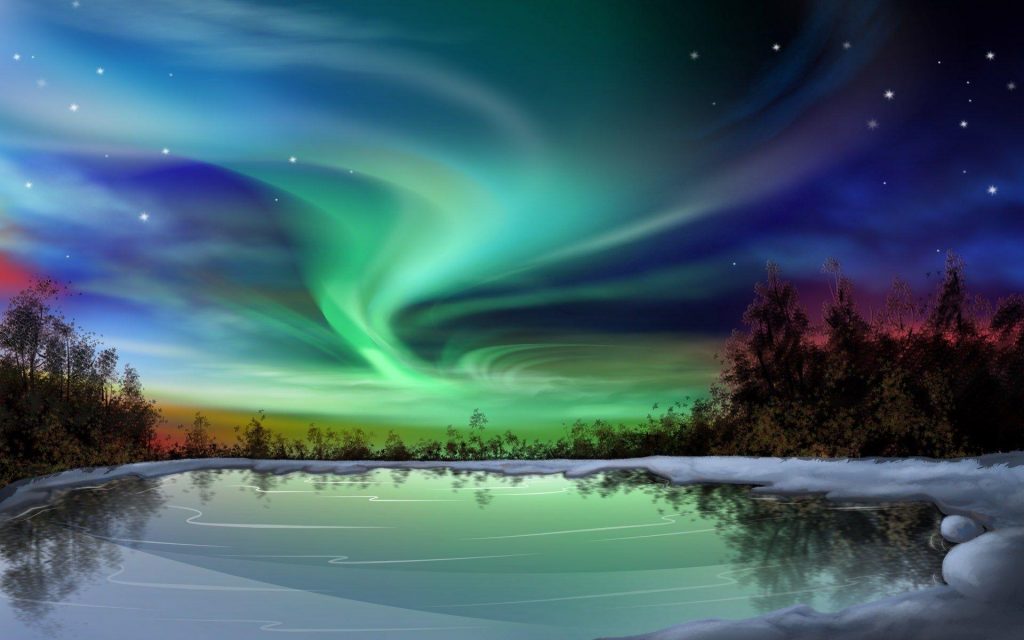
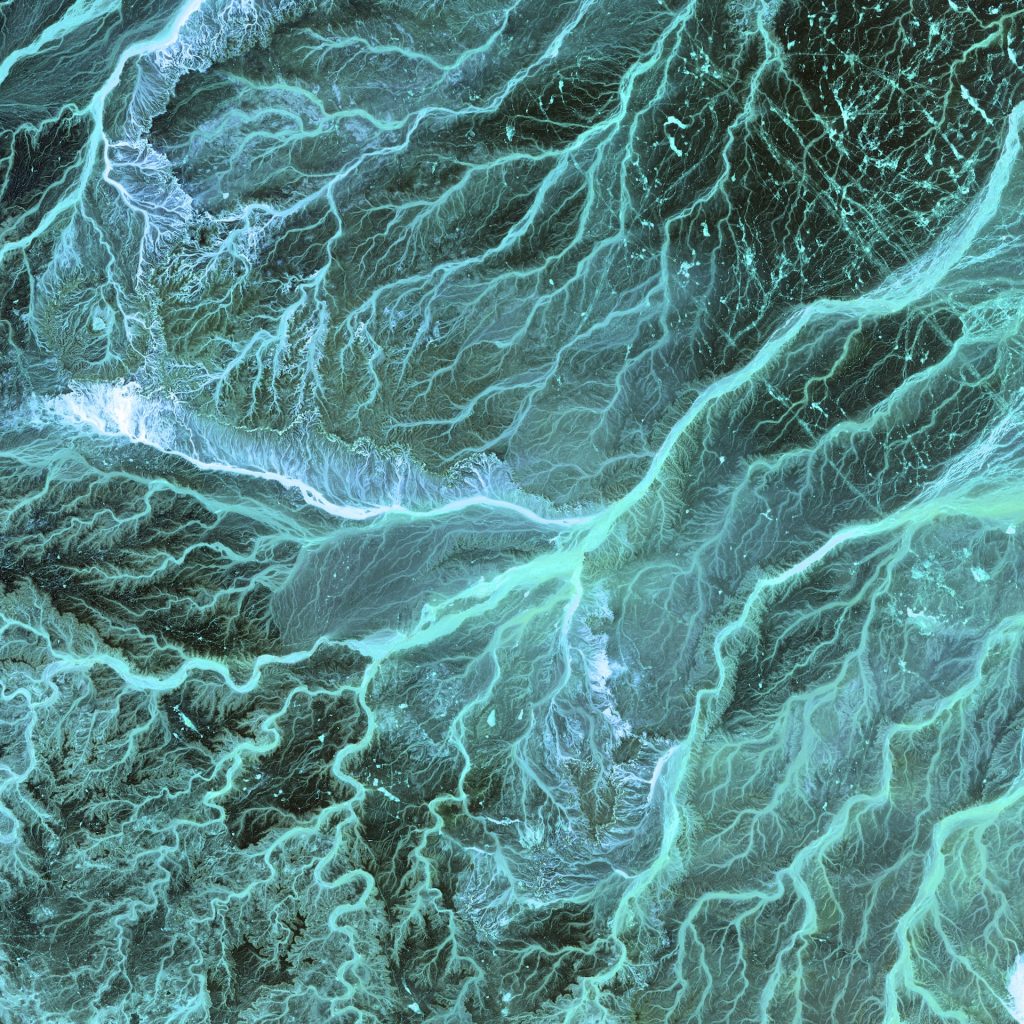
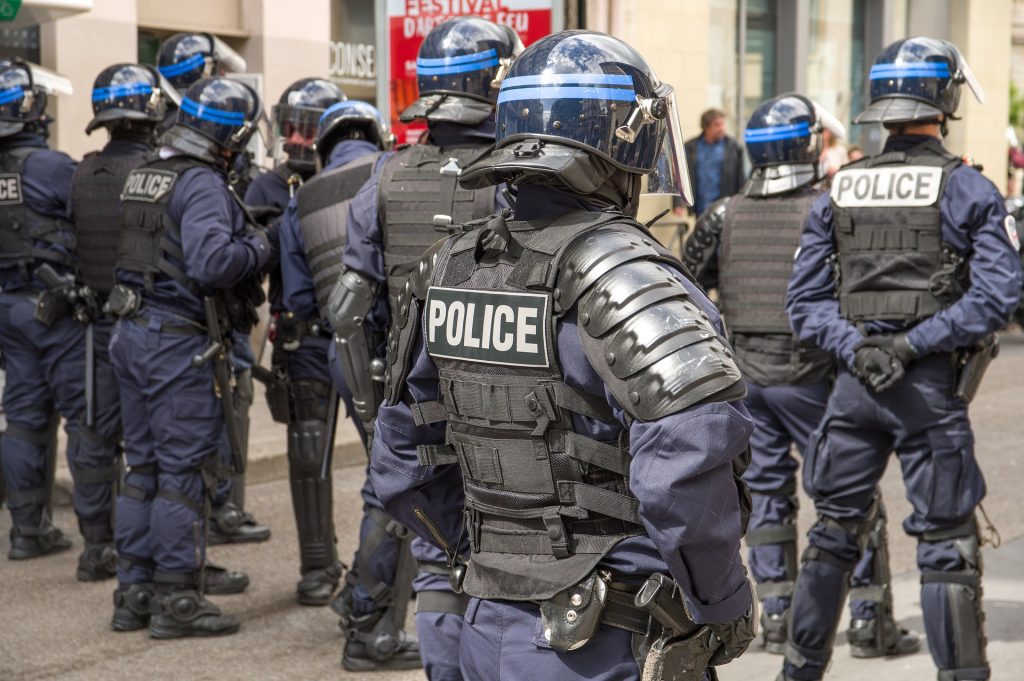
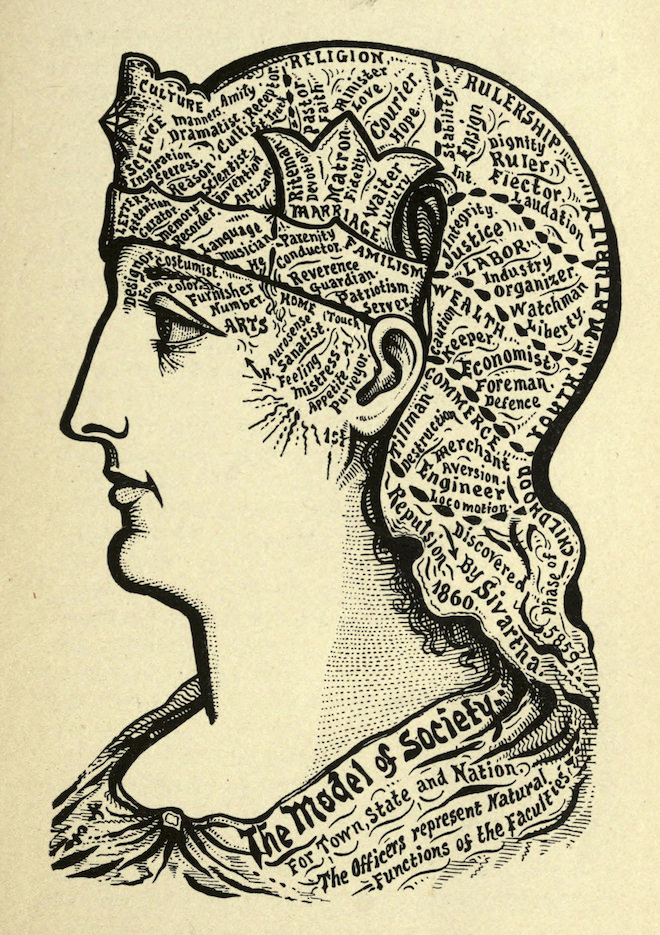
Hallo … sorry for asking you for a help – and not commenting your subject.
The thing is: once upon a time, actually in the year 1968-69 I spend a year at the Union Theological Seminary, where I met this wonderful young man: Craig Schindler. We became friends – but than I returned back home to Prague … and we lost after few years – any contact. Now, looking back at my life, I would love. to find out, what “happened” to him, since he war one of those people, who influenced me profoundly … Meanwhile I live in Germany…More about me: see Wikipedia.
So, if you have would not mind – could you help me to contact him? Just for the saje of changing some memories …
Thank you for understanding and – hopefully – help …. Dr. Dana Horakova ….. dana.horakova@gmx.de
Dr. Schindler’s website is here: https://www.drcraigfschindler.com/